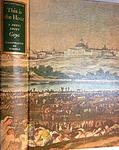Lion Feuchtwanger
Lion Feuchtwanger was a German-Jewish novelist and playwright known for his historical fiction. Born on July 7, 1884, in Munich, he became a prominent figure in the literary world of Weimar Germany. His works often dealt with the theme of Jewish life and history, and he was a sharp critic of the Nazi regime. Feuchtwanger's most famous work is the 1933 novel 'Jud Süß', which was later adapted into an anti-Semitic propaganda film by the Nazis, against the author's intent. He fled Germany after Hitler's rise to power and eventually settled in the United States. Feuchtwanger died on December 21, 1958, in Los Angeles, California.
Books
This list of books are ONLY the books that have been ranked on the lists that are aggregated on this site. This is not a comprehensive list of all books by this author.
-
1. This Is The Hour
This historical novel transports readers to the vibrant and tumultuous world of Renaissance Florence, focusing on the life and times of the legendary artist and thinker, Leonardo da Vinci. Through meticulous research and vivid storytelling, the narrative delves into Leonardo's relentless pursuit of knowledge, his unparalleled genius in both art and science, and his complex relationships with his contemporaries. Set against the backdrop of political intrigue, war, and the cultural flourishing of the Italian Renaissance, the book offers a compelling exploration of the challenges and triumphs of a man far ahead of his time, highlighting his contributions to humanity and his eternal quest for understanding the mysteries of the world.
-
2. Success: Three Years in the Life of a Province
"Success: Three Years in the Life of a Province" is a historical novel that provides a vivid account of life in Bavaria during the Weimar Republic, from 1926 to 1929. The narrative portrays the political, social, and economic struggles of the time, weaving together the lives of three main characters: an art dealer, a poet, and a conservative veteran. The book is a critical exploration of the rise of Nazism, the decadence of the bourgeoisie, and the power of art and culture.

